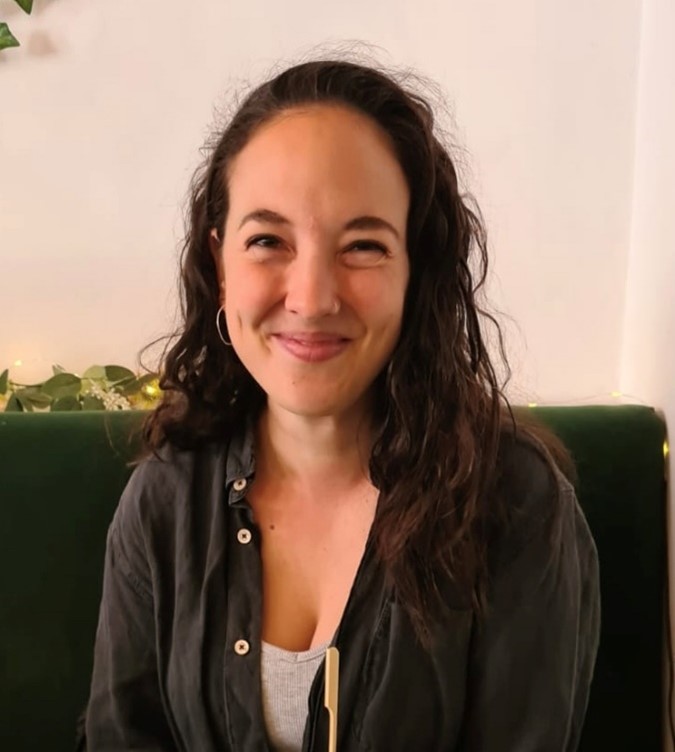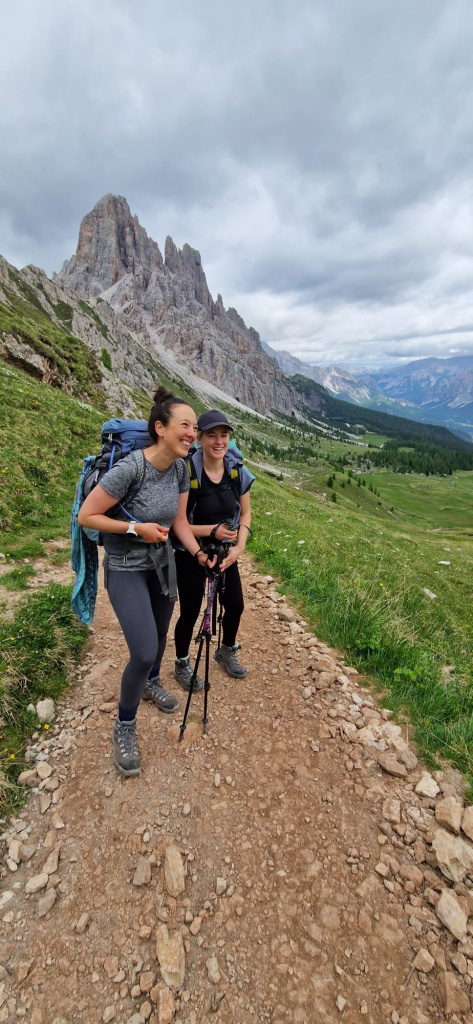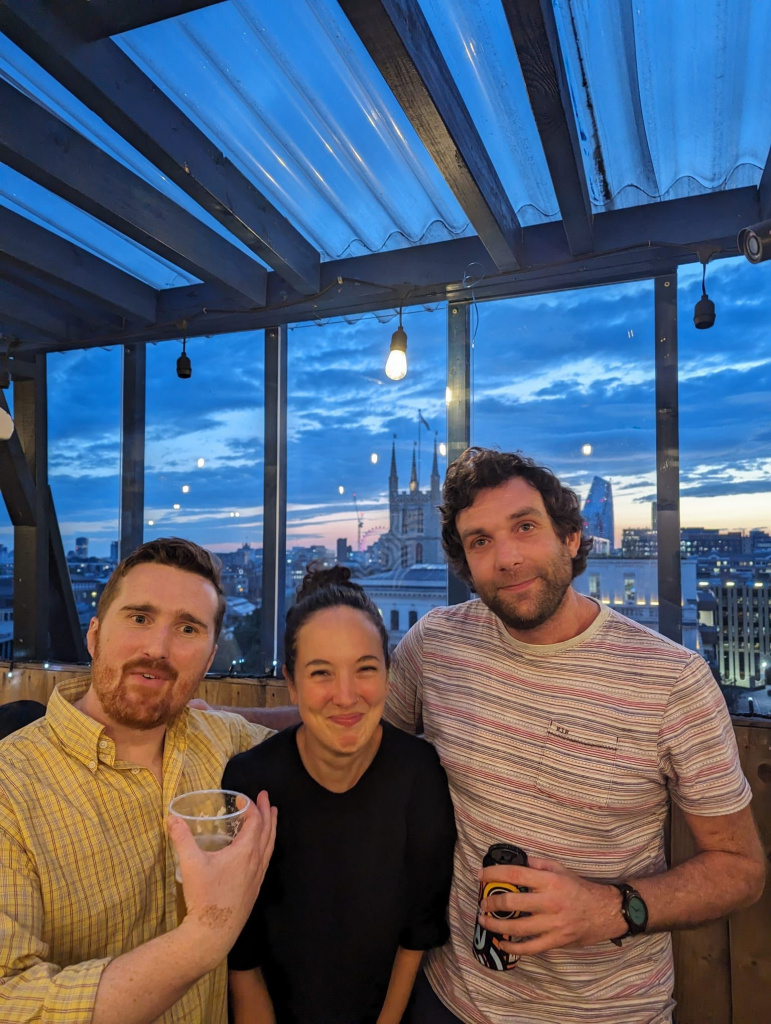How did you get there? Libby Eastwood

Great to hear from Libby Eastwood who has recently joined the UK Health Security Agency’s Behavioural Science and Insights Unit as an Insight Lead. UKHSA is a relatively new government agency, responsible for protecting the public from the impact of infectious diseases, chemical, biological, radiological and nuclear incidents and other health threats.
So, how did you get into social research, and take us through how you got to this point?
It’s been a winding route to where I am now – I’ve been within the world of research since the beginning of my career, but each job I’ve had has been in a different area of research, and the size of companies has varied from massive household name organisations to tiny consultancies that feel like a family. I’ve always been a curious person, so it’s partly been a case of wanting to try everything out but also that, as I’ve gained more experience, I’ve gradually worked out the things which are most important to me – so I feel lucky today to be researching in an area of policy that really fascinates me. As an English graduate, it is a source of surprise to me and my friends that that turns out to be something quite ‘sciencey’!
Research was a relative unknown to me until graduation when I started thinking properly about what I wanted to do long-term. I knew I wanted a career that was both creative and analytical – in other words, something that was going to involve both numbers and words – and research appealed as it seemed to offer the chance to build data analysis skills but also to think deeply about the implications of data and what that would mean for businesses/organisations.
I started off on the graduate scheme at Ipsos MORI, working in the Innovation team with a lovely bunch of other grads, some of whom I’ve stayed friends with to this day. My first role was on the Reckitt Benckiser account, running surveys with the public to inform their new product development strategy. I was able to support on projects using very innovative methodologies, such as eye movement tracking headsets to assess how noticeable a product’s new packaging was on the supermarket shelf, or self-completion video diaries to see how someone was using a product in their home. While I found it fascinating to get an insight into how a new product variant ends up on the shelves and seeing the new packaging that I had helped to test was always exciting, I knew that researching in FMCG probably wasn’t going to be for me long-term. That role was also a quant-only role and I had an inkling that qualitative research – talking to people and understanding their context in depth – would suit me better.
I then had a stint at a very small education consultancy before moving to mid-size agency IFF Research where I have spent the bulk of the last 6 or so years – with a year at Macmillan Cancer Support in the middle. During the pandemic, I worked on a project with NHS Test and Trace and (like many others) became fascinated with how the public behaved during that time, and how government messaging evolved as the pandemic progressed. I jumped at the chance to apply for this role in UKHSA when it came up at the end of last year.
What do you love most about working in social research?
It’s genuinely varied work. I love the fact that every project is different – over the course of my career I’ve learnt something about things I never would have encountered otherwise, from researching potentially exploitative labour practices in the hand car wash sector, to uptake of childcare financial assistance to small business response to Brexit. Not just that but interviewing and hearing from people who really challenge your way of thinking. It’s also been a really versatile career, which has taken me in different directions so far – and I hope over the rest of my career it will continue to!

What two things should junior social researchers focus on as they progress in their careers?
I have found that getting exposure to lots of methodologies and applications of research has helped me get a stage where I feel confident I’m doing something I find personally interesting and rewarding and that suits my skillset. That doesn’t necessarily mean moving jobs – but more about making sure you are proactively getting a breadth of opportunity within your role, putting yourself forward for different types of projects as much as possible, meeting people, putting yourself out there. I found that as I progressed in my career and moved organisations, this mindset has helped me to broaden my networks. This keeps me connected with the wider sector and has meant I stayed curious about research as a discipline.
I also think that building your soft skills – how you present yourself – as well as your technical skills will set you in good stead to progress.
Hearing from early career social researchers, they tell us no one seems prepared to take people on who don’t have the experience even though the roles are entry level – are there any hints and tips on how to get relevant experience and/or present their existing experience and skills in a more relevant way?
I think it is more than possible to present your skills in a way that will be of interest to someone hiring for a research role – but if your existing experience and skills aren’t directly applicable, YOU need to do the work to make the link to research clear for the person reading. As someone who got a graduate scheme job in research despite not having research qualifications or directly relevant experience, I think it helped that I had looked into what a career in research might involve and given proper thought about what I could bring to it. I would start by thinking through what it is about your experience (extracurricular, academic, or professional) that makes you believe that research will be a good fit for you. Why does it appeal? What value do you think you would bring?
There are also lots of ways to get experience in non-research roles, which will give you some transferable skills – for example, volunteering to organise an event in your local community. This might involve project management, conducting desk research, interviewing people in the community about what the event could be or what their experience was like…

Are there perhaps any research related jobs that will hire people without the applied experience that could possibly act as a stepping stone?
In my last job at an agency, we had a large telephone centre where people without applied experience could work as telephone interviewers – in a casual capacity if that suited them. In the past I have also led teams to conduct in-person research at Europe-wide professional conferences which often required large teams and so we would take on non-research trained people to help us.
Do you have any advice for our sector?
Over the years, I’ve noticed an understandable move towards rapid research, where research is carried out and the findings fed back as quickly as possible. This feels particularly pertinent to my current role, where in-the-moment research is needed to help inform UKHSA’s response to a new infectious disease outbreak or public health emergency event, but of course it’s applicable across many sectors. I think this is a positive move in many ways, and we as researchers can bring great value to businesses if we deliver high quality actionable research really quickly so that stakeholders can make evidence based decisions in a timely way – but we need to be careful about doing this in a way that does not sacrifice any perception of robustness and crucially protects individuals from burn out during the process.
And do you have anyone who has helped your career so far that you’d like to acknowledge and say thanks or give a shout out to?
I’ve worked with a lot of excellent people over the course of my career, so that list feels pretty long to me! I think my line managers over the years are the people that most stick in my mind. In particular, Celine, my line manager in my first job, who was the most nurturing person and has really instilled in me a love for a good-looking slide. Then two of my colleagues from Macmillan Cancer Support, Meera and Sam, who were both inspirational leaders. I have Sam to thank for introducing me to ‘structured thinking’ – this is a way of thinking that uses Barbara Minto’s Pyramid Principle approach, and I have found it helpful in being able to bring order and clarity to both individual deliverables and larger programmes of work. And last but not least, Catherine, who was a great source of support over the pandemic.